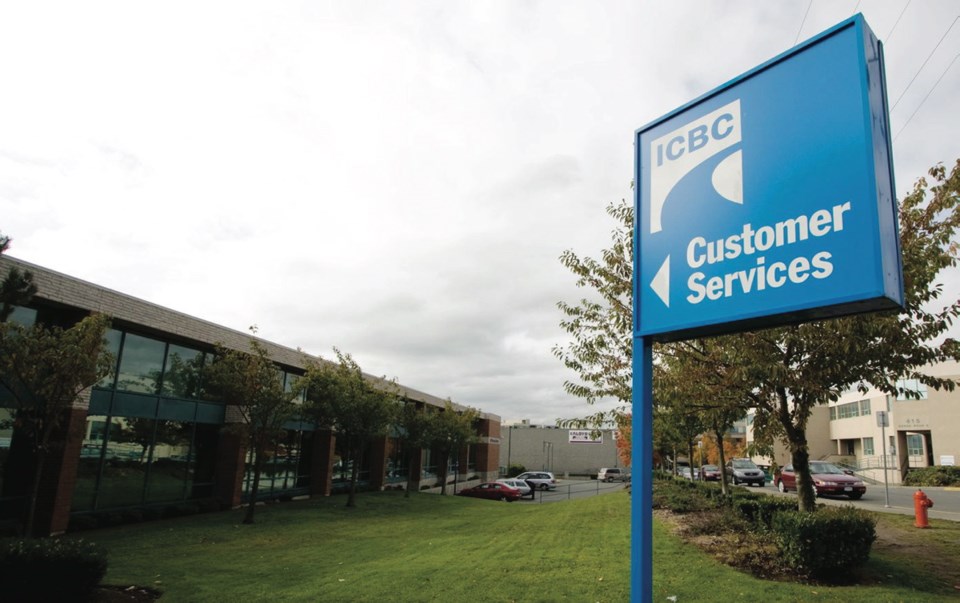 Strict new regulations that limit people’s rights to claim damages after car crashes are going to save ICBC a fortune. The question is whether the overhaul of the claims system introduced in the legislature on Monday will benefit clients as much as they will the corporation.
Strict new regulations that limit people’s rights to claim damages after car crashes are going to save ICBC a fortune. The question is whether the overhaul of the claims system introduced in the legislature on Monday will benefit clients as much as they will the corporation.
The maximum amounts payable in various categories of damages for serious injuries will be increased substantially. But amounts paid out for “minor injuries” will be capped much lower than the norm now. And the majority of claims fall in the minor category.
Those customers now routinely hire lawyers and pursue the Insurance Corp. of B.C. for damages, winning an average award of $30,000 for minor injuries, a substantial share of which goes to lawyers and legal costs.
When the changes take effect next year, that pool of customers will be facing a maximum of $5,500 in damages, and awards for pain and suffering will be dramatically curtailed. The new system also attempts to shunt lawyers out of the picture. All cases with damages below $50,000 will go to civil dispute resolution tribunals, not the courts. Settlements are expected there in 90 days, rather than three years in court.
Those changes and more are in bills introduced Monday that will dramatically retool B.C. auto insurance.
Attorney General David Eby said the changes, first unveiled in February, will save ICBC $1 billion a year, even with increased benefits coming for serious injuries. ICBC is projected to lose $1.3 billion this year. The previous government, under the B.C. Liberals, ordered independent reports as the fiscal crisis developed. The NDP legislation is based on ideas from those reports.
Lawyers’ fees, expert witnesses and legal costs amount to one-quarter of ICBC’s total costs. That amount is expected to be slashed after the bill takes effect.
Eby said the goal is to get ICBC back into the black. There are two confounding factors, he said. One is the behaviour of lawyers in how they react to the new framework. Many of the personal injury lawyers will be unhappy, he acknowledged.
Some will look for ways to get cases out of the minor injury category, so they can go to court. He said advertising by personal injury lawyers has increased by 50 per cent recently and the administrative costs of handling minor injuries is up 200 per cent.
The government said there’s been massive growth in overall injury costs. They increased by 80 per cent between 2009 and 2016, to $2.7 billion from $1.5 billion.
The trends aren’t sustainable, Eby said.
“We have to do this.”
The other is the rising crash rate. B.C. and other jurisdictions have seen car crashes increase in recent years. The government is planning other moves soon to limit autobody repair costs and another suite of road safety measures is in the works.
The ICBC bill includes a new legal definition of “minor injury.” Four pages of legislation are devoted to that category, and more details will come through regulations. A host of other details will come in regulations covering benefit increases and the value of services from health-care practitioners. Those care providers will be required to submit a long report to ICBC on any treatment for crash victims. Details will include the nature and extent of the injuries, the diagnosis, the patient’s condition at time of treatment and the prognosis.
Eby and the NDP government have a lot riding on the bill. He went out of his way to highlight the ICBC crisis after he was handed authority for the corporation. The government’s February budget stressed the impact its poor performance is having on the province’s finances.
He not only said the changes will save $1 billion, but also make insurance premiums “more affordable.”
Safe drivers with good records could see a reduction in their premiums, he said. That would depend on how much stress is put on maximizing the punishment through premium hikes for bad driving.
With back-to-back years of huge losses and a continuing increase in crash rates, there isn’t much room to manoeuvre. The prospect of across-the-board premium cuts is pretty unlikely. Just holding the line at current high rates would be a win.



